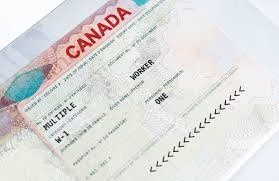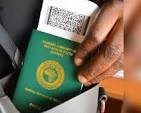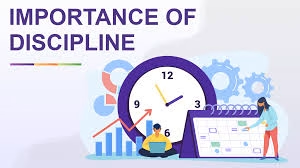
How to Get Canada Visa Approval: The Ultimate Guide for Nigerians in 2025
Canada like we all know, is a dream destination for many Nigerians seeking quality education, better job opportunities, or simply a higher standard of living. With its stable economy, multicultural society, and immigrant-friendly policies, it’s no surprise that Canada continues to top the charts for migration in 2025. But here’s the real truth from our expert researchers: getting a Canadian visa is not as easy as just submitting a form and waiting for approval.
Records have it that, each year, thousands of applicants from Nigeria face rejection, some for avoidable mistakes, others due to poor documentation or lack of clarity. So how do you increase your chances of visa approval and avoid being just another statistic? is a question that we are here to answer on today’s blog article
In our no-fluff, high-value guide, we’ll break down everything you need to know about getting your Canadian visa approved, step-by-step. Whether you’re applying for study, work, visit, or immigration, we present to you; your cheat code to success.
Types of Canadian Visas You Can Apply For
Before you dive in, we will like you to know Types of Canadian Visas You Can Apply For and why you must choose the right type of visa. Your purpose of travel determines which visa you need:
1. Visitor Visa (Temporary Resident Visa)
- For tourism, visiting friends/family, or attending short events.
- Valid usually for 6 months.
- Not a pathway to permanent residency.
it can be a starting point for a lot of person
2. Study Permit
- For students admitted to Canadian Designated Learning Institutions (DLIs).
- Can lead to post-graduate work permit and eventually permanent residency (PR).
3. Work Permit
- For skilled or temporary foreign workers with a valid job offer from a Canadian employer.
- Two types: Employer-specific and Open Work Permit.
4. Express Entry (Permanent Residency)
- Based on a points system.
- For skilled workers looking to migrate permanently.
- Includes Federal Skilled Worker (FSW), Canadian Experience Class (CEC), and Federal Skilled Trades Program.
5. Provincial Nominee Program (PNP)
- Each Canadian province can nominate individuals based on their specific needs.
- You must express interest in a province.
Step-by-Step: How to Get Canada Visa Approved from Nigeria
Let’s go into detail on all how you can get your Canadian visa approval from Nigeria in some simple steps
Step 1: Be Clear on Your Purpose
Many applicants get rejected simply because they can’t prove why they want to travel to Canada, which is a red flag on it own.
- Are you going to study? Show proof of admission and tuition.
- Going to visit a friend? Have an invitation letter and strong ties to Nigeria.
- Want to work? Get a Labour Market Impact Assessment (LMIA)-approved job offer.
Clarity is key, so make sure you have a clear purpose as to why you want to travel.
Step 2: Choose the Right Visa Type and Stream
You can not be traveling for studies and be applying for visitor visa. For permanent migration, Express Entry is the most popular. But if your Comprehensive Ranking Score (CRS) is low, consider Provincial Nominee Programs (PNP) or study-to-PR pathways.
For temporary visits, always opt for the Visitor Visa, but never mention long-term settlement plans that’s a red flag.
Step 3: Prepare Your Documents Meticulously
Your visa application lives and dies on your documents. Commonly required documents include:
- International passport (valid for at least 6 months)
- Passport photographs (according to Canadian standards)
- Completed application form
- Proof of financial support (bank statements, payslips, sponsor letter)
- Letter of explanation or statement of purpose
- Police clearance certificate
- Medical exam (for stays over 6 months or work permits)
- Academic documents (for study permits)
- Job offer letter (for work permits)
- Proof of ties to Nigeria (land documents, employment letter, family)
Pro Tip: Label your documents clearly and upload them in the right file format (PDF/JPEG).
Step 4: Create a GCKey Account on the IRCC Portal
To apply for any Canadian visa, you’ll need to use the Immigration, Refugees, and Citizenship Canada (IRCC) portal:
- Visit: https://www.canada.ca/en/immigration-refugees-citizenship/services/application/account.html
- Register for a GCKey account.
- Complete your application form online.
- Upload all documents.
- Pay the required fees.
- Submit your application and wait for a biometric instruction letter (BIL).
Step 5: Biometrics & Medicals
After applying, you’ll receive a BIL within a few days. You must:
- Book an appointment with TLS Contact in Lagos or Abuja
- Pay the biometric fee (usually ₦32,000–₦45,000)
- Go for fingerprinting and photograph
For some visa types, you’ll also be required to undergo a medical exam at a panel-approved hospital like Q-Life Family Clinic or IOM in Lagos.
Step 6: Wait for Processing (and Don’t Panic)
Processing times vary:
- Visitor Visa: 4–8 weeks
- Study Permit: 6–12 weeks
- Work Permit: 8–20 weeks
- Express Entry: 6–12 months
During this time, you may be asked to submit additional documents or attend an interview. Be prompt and transparent.
Common Reasons Why Nigerians Get Rejected
If you don’t want to be rejected, avoid these mistakes:
1. Weak Statement of Purpose (SOP)
This applies to students and even tourists. Your SOP should explain:
- Why Canada?
- Why this program or school?
- Your career plan after graduation
- How you’ll fund your studies or stay
2. Lack of Strong Home Ties
Canadian officers want to see you’ll return to Nigeria. Provide proof like:
- Employment letter
- Business ownership documents
- Land or property
- Family (children or spouse)
3. Insufficient Funds
For a study visa, prove you have enough to cover:
- Tuition for one year
- Living expenses (at least CAD 10,000/year)
- Travel and emergency funds
Visitor visa applicants must also show they can afford their stay.
4. Fake or Inconsistent Documents
Even a minor inconsistency (like date of birth mismatch) can lead to rejection or a 5-year ban.
5. Wrong Visa Stream
Applying under the wrong category (e.g., trying to work with a visitor visa) will get you rejected immediately.
How to Increase Your Chances of Visa Approval
Be Truthful and Consistent
lets now focus on how to increase your chances of Visa Approval and avoid rejection. Every document must match your story, your funds, your history. Don’t “package” lies; Canada’s IRCC is not naive.
Use a Well-Crafted SOP or Cover Letter
Your letter can change everything. Use storytelling to paint a picture of who you are, why you deserve the visa, and how you’ll benefit Canada.you must represent yourself well on writing
Get Professional Help If Necessary
You don’t need an agent, but if you’re unsure, consider a licensed immigration consultant (RCIC), not some roadside “visa plug.”all in the name that you want to get it cheap.
Prepare for Your Interview (if requested)
If called for a physical or virtual interview, be prepared to:
- Explain your purpose
- Prove strong ties to Nigeria
- Show your funding is legit
Bonus: Study-to-Permanent Residency Route
One of the smartest ways to migrate is through a study visa, because:
- You get a Study Permit → Graduate
- You become eligible for a Post-Graduate Work Permit (PGWP)
- You gain Canadian work experience
- You apply for Express Entry or PNP
This pathway is safer, legal, and gives you time to settle in before applying for PR.
Whatsnextng Thought: If You’re Not Ready, Don’t Apply
What nigerians shoud know is that Canada is open, but not desperate to welcome nigerians so Submitting an incomplete or weak application only damages your chances in the long run. If you’re not financially or documentarily ready, pause, save, research, and return when you are.
Every year, thousands of Nigerians get approved and you can be one of them.
Just don’t rush.
Frequently Asked Questions (FAQs)
1. How much is the Canada visa fee in Nigeria?
- Visitor Visa: CAD 100 (about ₦90,000)
- Study Permit: CAD 150 (about ₦135,000)
- Work Permit: CAD 155 (about ₦140,000)
- Biometrics Fee: CAD 85 (₦32,000–₦45,000)
Fees vary depending on exchange rates and service centers. Always check the IRCC website for the latest fees.
2. What is the minimum bank balance for a Canadian visa from Nigeria?
- Visitor Visa: Enough to cover your stay (usually ₦1.5 million+ for short visits)
- Study Permit: Proof of funds for:
- Tuition (1 year): CAD 15,000–CAD 25,000+
- Living expenses: Minimum CAD 10,000 (~₦9 million)
You can use personal savings, sponsor letters, or a combination of sources but it must be verifiable and consistent.
3. How long does it take to process a Canadian visa in Nigeria?
- Visitor Visa: 4–8 weeks
- Study Permit: 6–12 weeks
- Work Permit: 8–20 weeks
- Express Entry (PR): 6–12 months (after ITA)
Processing times can change, so monitor your application via your GCKey portal.
4. Can I apply for a Canadian visa without an agent?
Yes. it even better if you understand the processes completely Many successful applicants do it themselves using the official IRCC portal. Agents can help, but make sure they are RCIC-certified (Regulated Canadian Immigration Consultants).
5. Can I work in Canada with a visitor visa?
No. yes, you read it right. NO Working while on a visitor visa is illegal and can lead to deportation or bans. You need a valid work permit to work in Canada.
6. What documents do I need for a Canadian student visa?
- Letter of acceptance from a Designated Learning Institution (DLI)
- Proof of tuition payment (or scholarship)
- Bank statements/sponsor letter
- Statement of purpose (SOP)
- Passport, photos, medicals, biometrics, police clearance
7. Will I get a refund if my visa is denied?
No. Visa fees are strictly non-refundable, even if your application is refused. That’s why it’s important to submit a strong and complete application the first time.
8. What are the chances of getting a Canadian visa as a Nigerian?
Well Approval rates depend on the visa type and the strength of your application. Study permits generally have a higher success rate than visitor visas especially if your documents are complete, your purpose is clear, and your ties to Nigeria are strong.
9. Can I reapply if I’m denied a visa?
Yes. You can reapply immediately after a refusal, but you should correct the main reasons for the rejection and preferably request a GCMS notes to understand what went wrong.
10. What is the safest way to migrate to Canada from Nigeria?
Our research team have it that study to PR route is considered one of the safest, most legitimate paths:
- Study Permit
- Post-Graduate Work Permit
- Canadian Work Experience
- Express Entry or PNP
- Permanent Residency
our reearch method allows you to build your life in Canada while following all legal procedures.
About WhatsNextNG
We’re your #1 Nigerian lifestyle and global opportunity blog. From travel hacks to visa secrets, we bring the facts, fire, and fearlessness to every story. Stay ahead only on WhatsNextNG.




